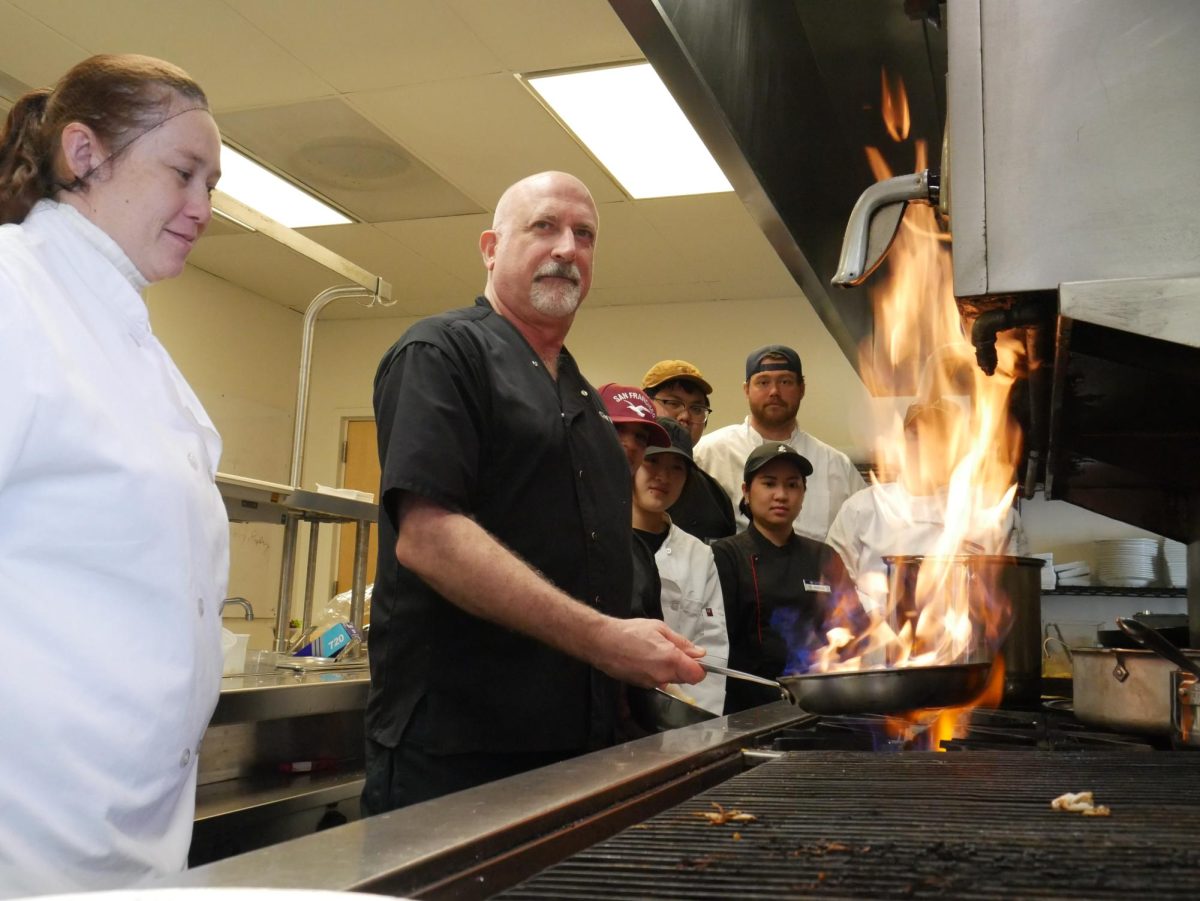Starting in the fall, San Francisco State University is swapping in an Environmental Sustainability and Climate Action graduation requirement to take the place of the existing Environmental Sustainability requirement.
“We are responding to the understanding that all jobs in the future will be climate jobs in some way,” said Autumn Thoyre, co-director of SFSU’s Climate HQ. “Our students, no matter their major and no matter their career, need to understand climate change because it is already impacting their lives.”
Climate justice is the concept that the largest contributors to climate change should bear the most responsibility in helping those affected by it, especially vulnerable communities, according to the United Nations Development Programme.
In a press release, SFSU announced that it is the first major public university and the first in the California State University system to require students to pass a course that includes climate justice.
The ESCA requirement will be an area under SF State Studies, which are four topics that students should be knowledgeable about, according to the academic bulletin. The CSU system has graduation requirements but individual campuses can add their own requirements, which are called SF State Studies at SFSU.
The release also said the 111 courses that fulfill the ES requirement will meet the new ESCA requirement, meaning this won’t impact current students’ paths to graduating.
“There is a lot of overlap between the ES learning outcomes and the ESCA learning outcomes, so there isn’t much worry that the courses as currently designed to meet the ES requirement will be drastically misaligned with the ESCA requirement,” said Dr. Jane DeWitt, associate dean of academic planning. “Departments who offer ES courses will be asked to communicate with faculty who teach the courses about the new learning outcomes and revise course materials and assignments accordingly.”
Dr. Dewitt said the recertification process will start with a faculty committee through the Academic Senate calling for recertification. Then, faculty who teach those courses are expected to submit a report on how the ESCA learning outcomes are taught and demonstrated by students. The faculty will also submit reports on their curriculum. Then, the committee will review the materials to determine if the courses meet the ESCA standards.
According to Thoyre, the hope for the requirement is that faculty will incorporate climate justice into their existing courses so they can be certified to meet the requirement.
“Because SFSU has a long history of social justice and addressing climate change, many of our students are already taking courses that touch on climate justice,” said Dr. Amy Sueyoshi, SFSU provost. “This revision makes our commitment to providing climate justice education official even though we’ve been doing that already.”
Eid Almujaipel, a graduate creative writing student, says it would have benefitted him to learn about climate justice when he was an undergraduate student in Boulder, Colorado.
“I think it’s more important to look at it from the perspective of how it affects people as opposed to just what happens on the surface level,” Almujaipel said. “It’s important to know that large corporations and billionaires who contribute a lot to climate change should have more of a responsibility in addressing climate change.”
Mars Cikvasvili, a fourth-year environmental studies student said it’s a really important change.
“A lot of people know about climate change but don’t want to learn about the specifics and how it could impact them,” Cikvasvili said. “Hopefully this class requirement can inspire and educate more people to make changes in not only their life but try and change their communities for the better of the environment. People are often unaware of how much climate justice is intertwined with other social issues and what could be determined to be a climate issue.”









